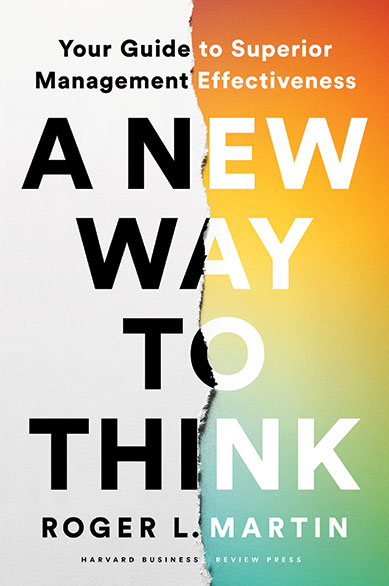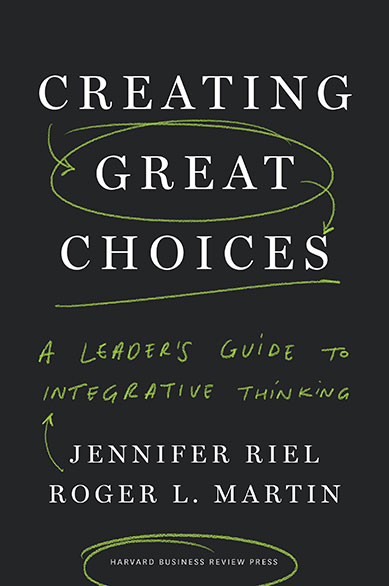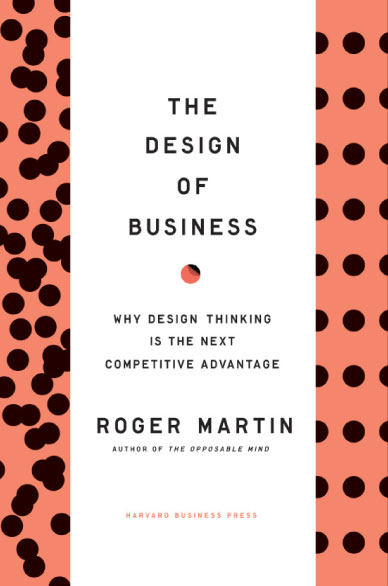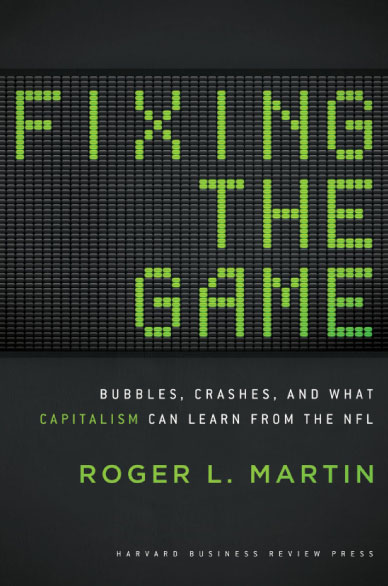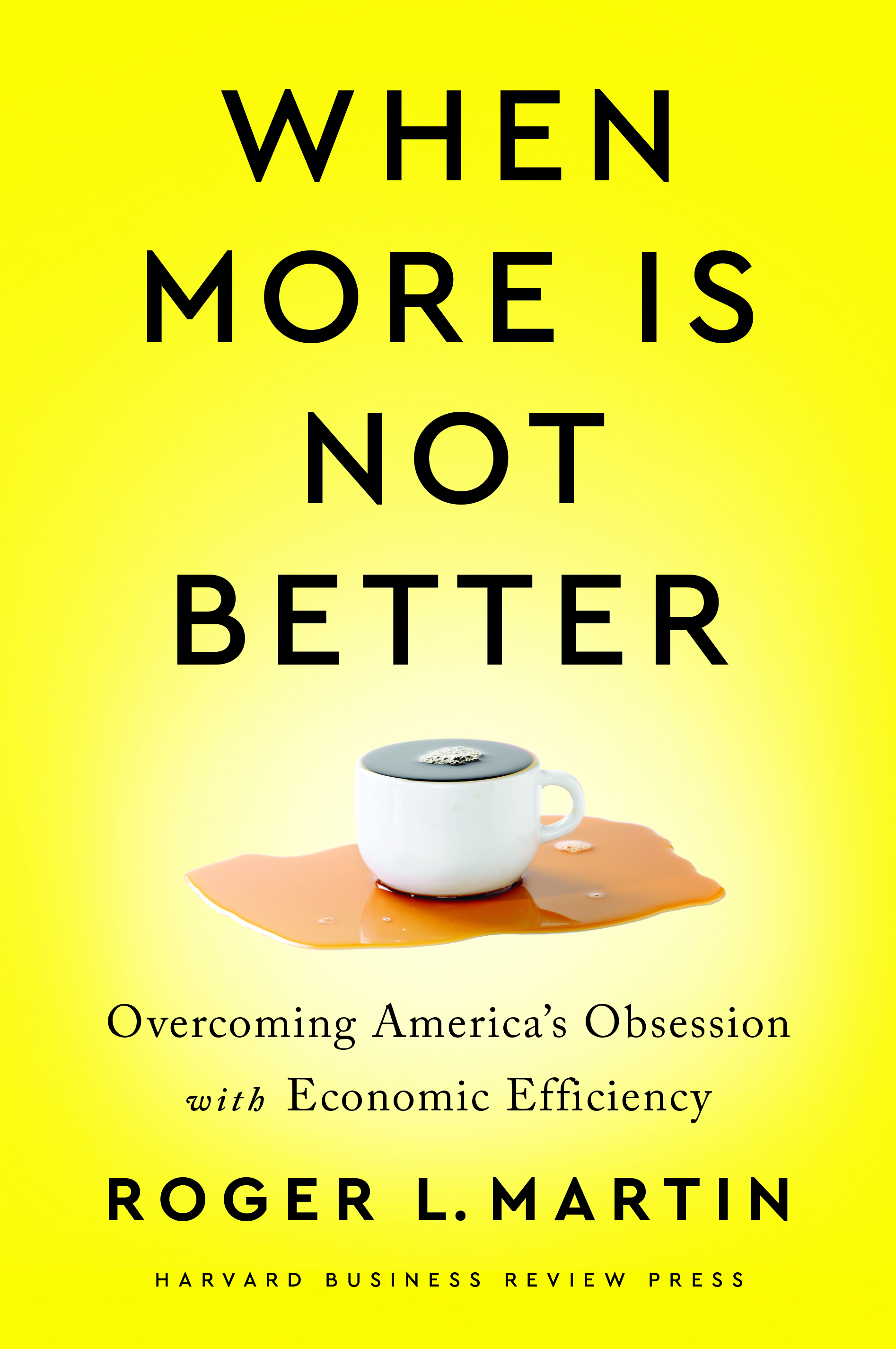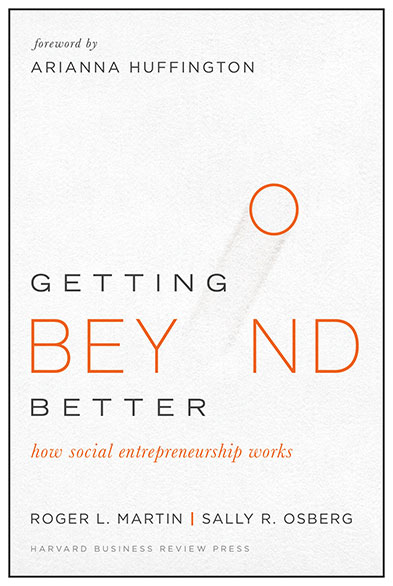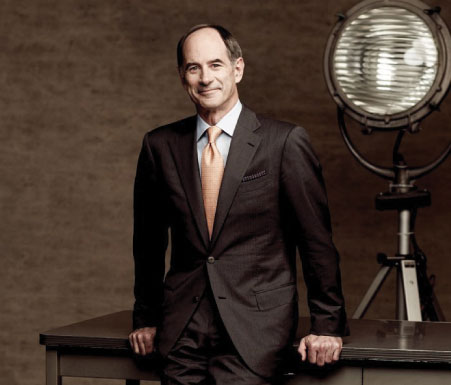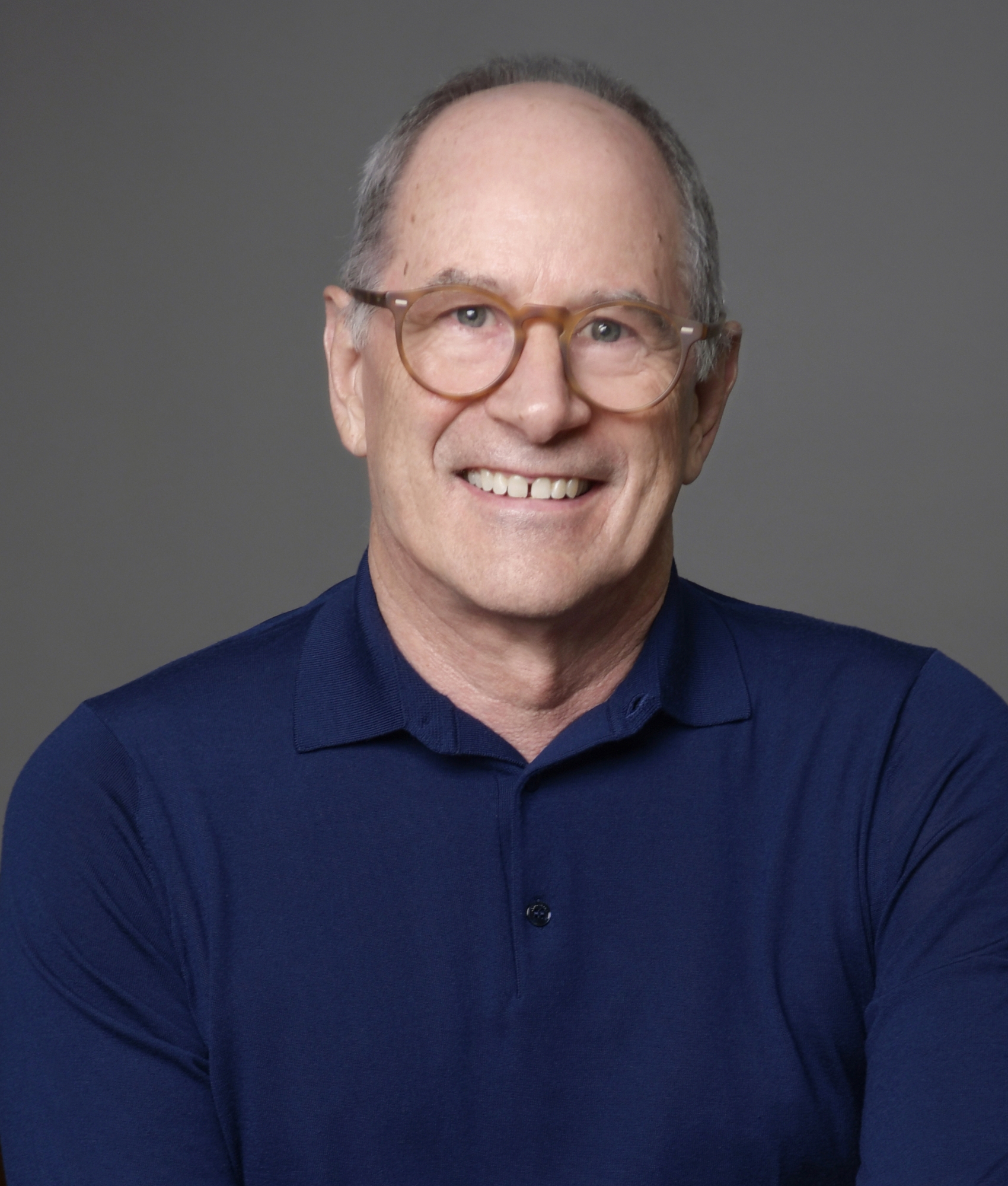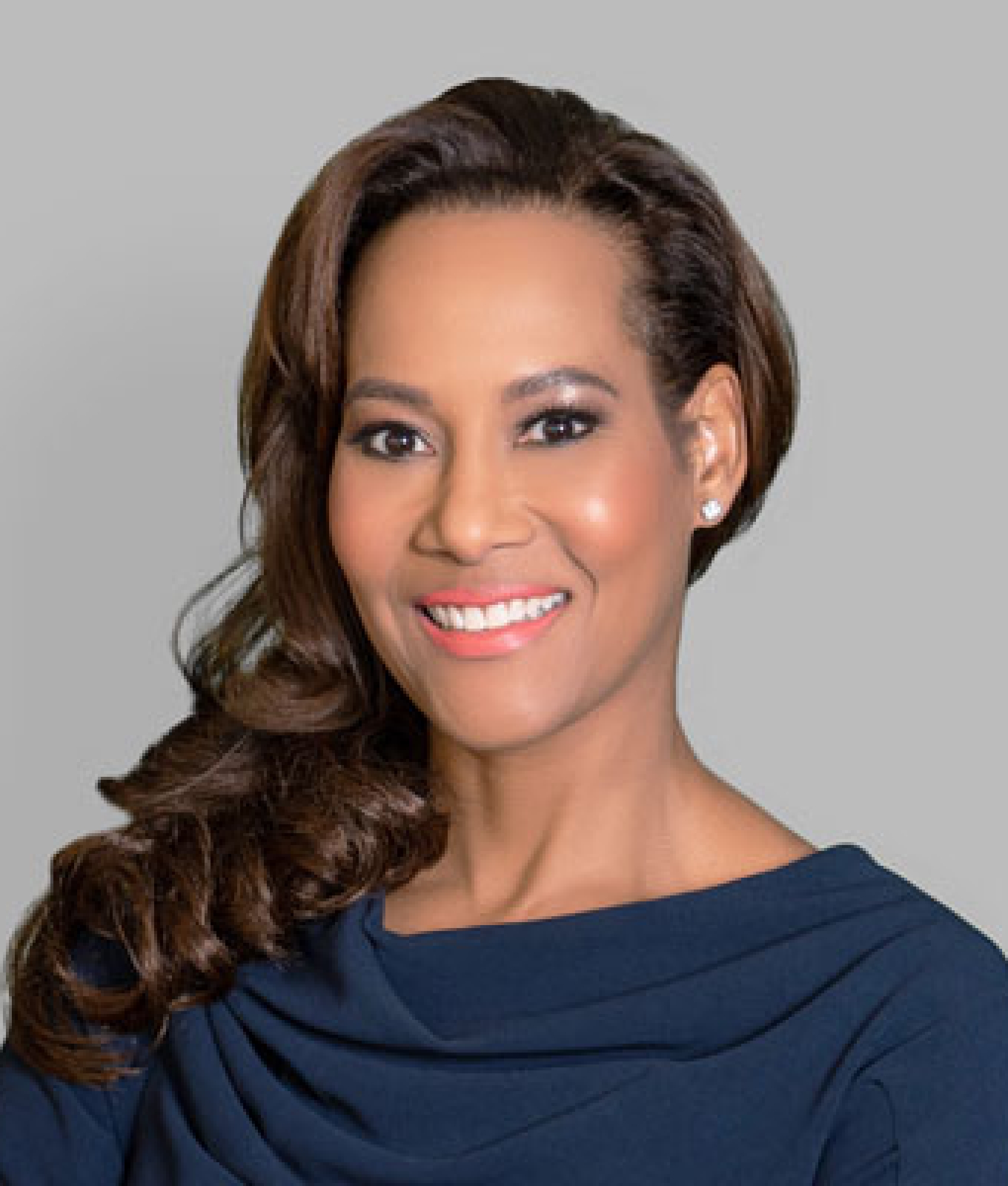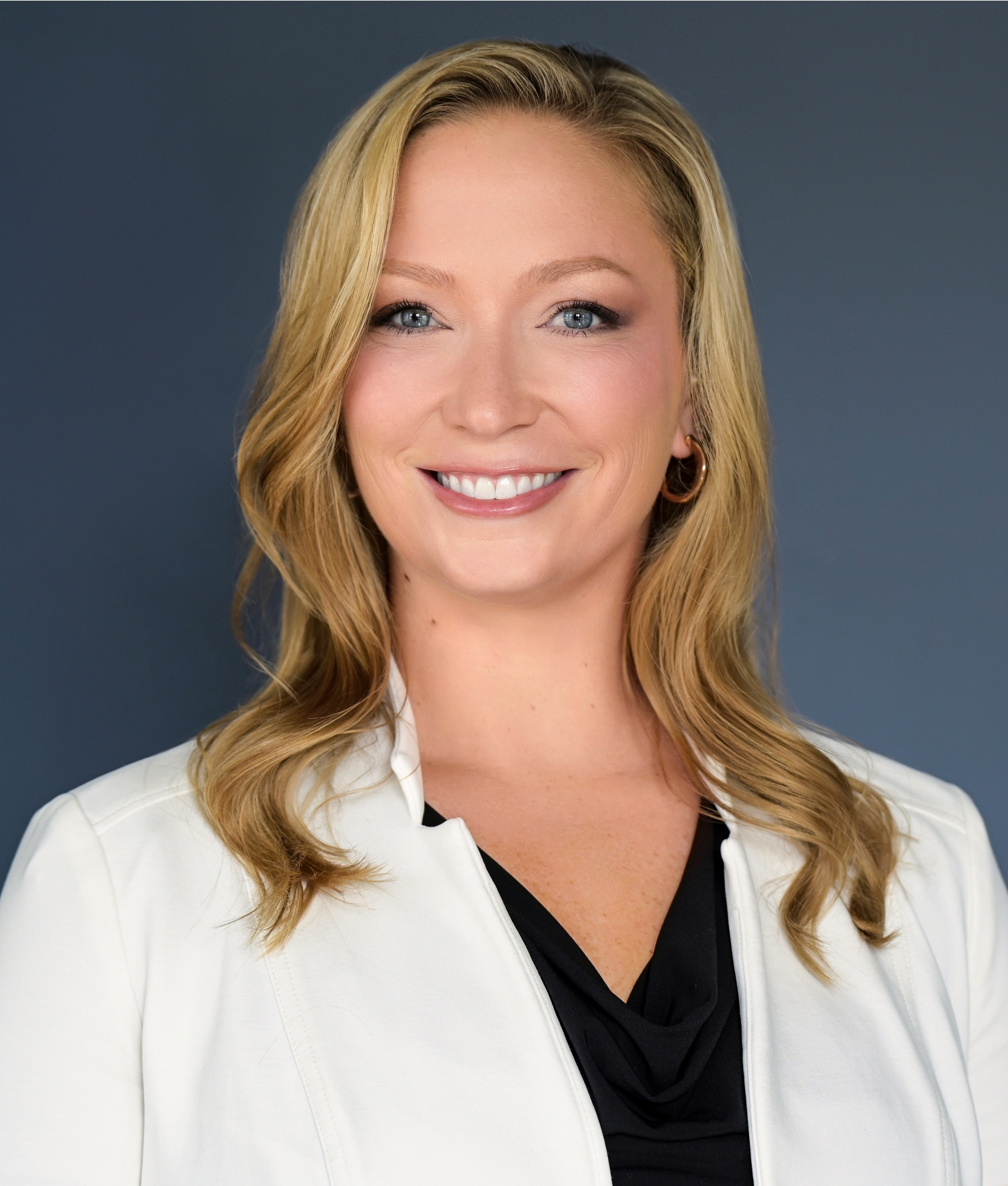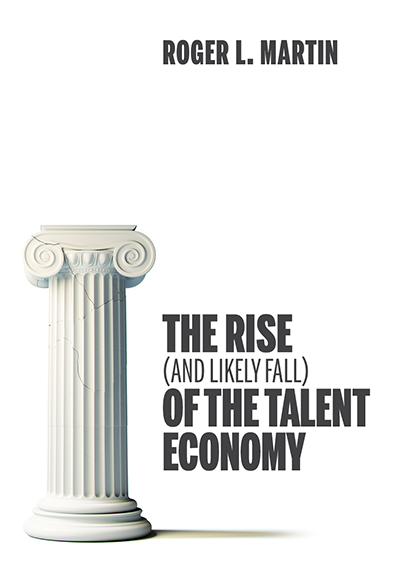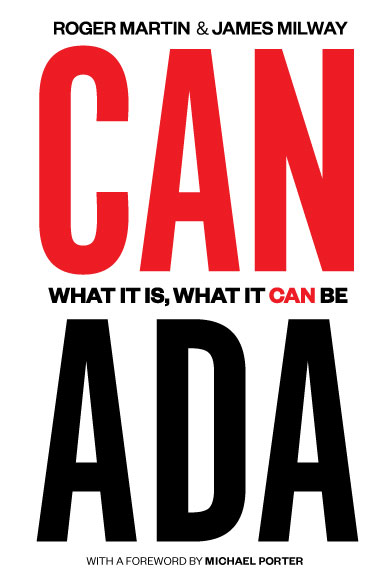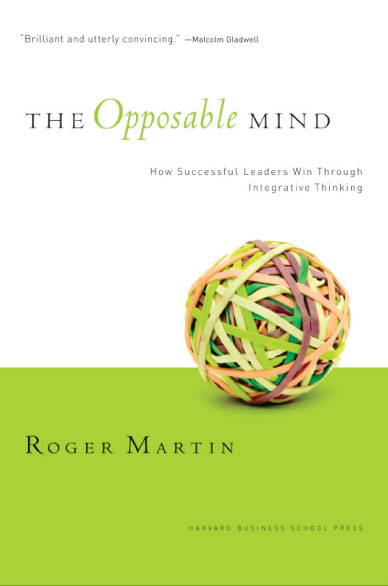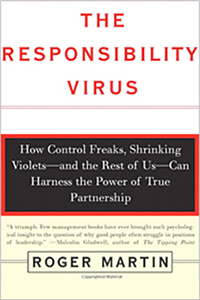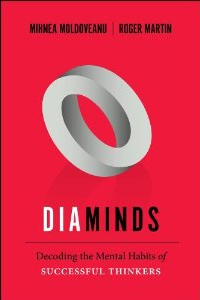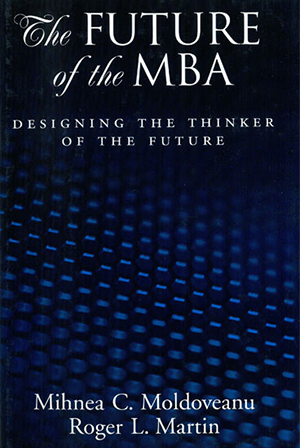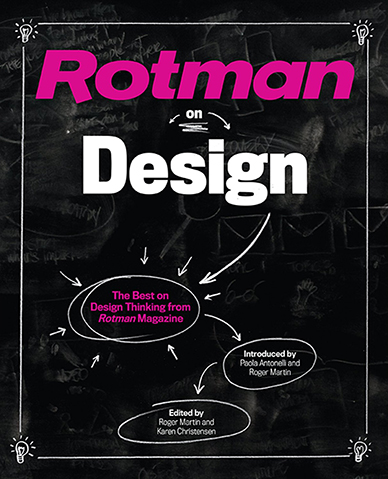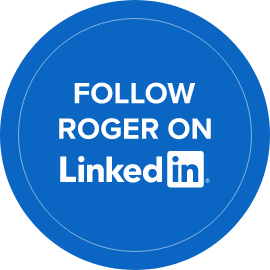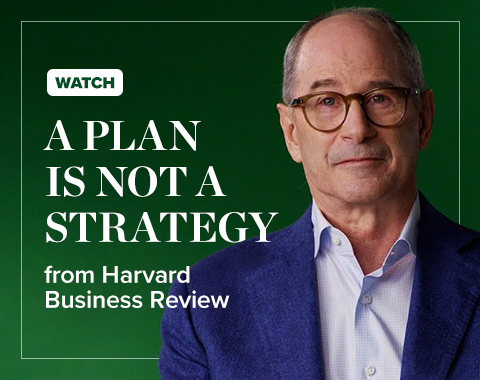Since the turn of the new century, we’ve experienced two massive value-destroying market meltdowns and a series of ethics breaches and accounting scandals. Is it the inevitable decline of the American economy? The new normal in a technology-enabled global marketplace?
Now, bestselling author Roger Martin, called by The Times one of top fifty management thinkers in the world, reveals the culprit behind the sorry state of American capitalism inFIXING THE GAME: Bubbles, Crashes, and What Capitalism Can Learn from the NFL (Harvard Business Review Press; May 2011). A widely influential management thinker, Martin targets the problem and tells us how to fix it, now. Our deep and abiding belief that the firm exists to maximize shareholder value has led to massive growth in stock-based compensation for executives and a naive and wrongheaded coupling of the “real” market (the business of designing, making and selling products and services) with the “expectations” market (the business of trading stocks, options and complex derivatives). It’s a bit like confusing winning the Super Bowl with winning a bet on the Super Bowl.
“Our single-minded focus on the expectations market will continue driving us from crisis to crisis to ruin—unless we act now,” says Martin. Drawing on the analogy of the National Football League’s strict separation of actual games from betting, Martin shows how to reverse our plight by taking a much more thoughtful and effective approach to the intersection of the real and expectations markets and to governance in general. His unique game plan for American capitalism to successfully regain lost yardage and attain its powerful maximizing objectives includes:
- Restructuring executive compensation to focus entirely on the real market, not the expectations market;
- Rethinking board governance and the role of board members and the autonomy of auditors;
- Reining in the power of hedge funds and monopoly pension funds;
- Five positive steps to heal American capitalism, fix the game, play tough and win in the real world.
Concise, hard-hitting and entertaining, FIXING THE GAME advocates seizing American capitalism from the jaws of the expectations market — and planting it firmly in the real market, and tells us exactly how to do it, starting now.
FORMAT: Paperback
PUBLISHER: Harvard Business Review
PUBLISH DATE: May 3, 2011
ISBN: 1422171647
PAGES: 192
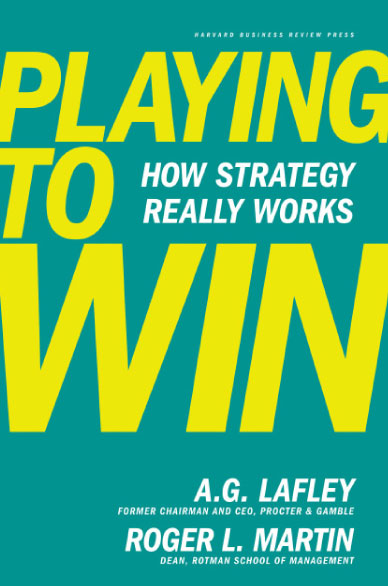 Buy the book
Book roger to speak
Buy the book
Book roger to speak
